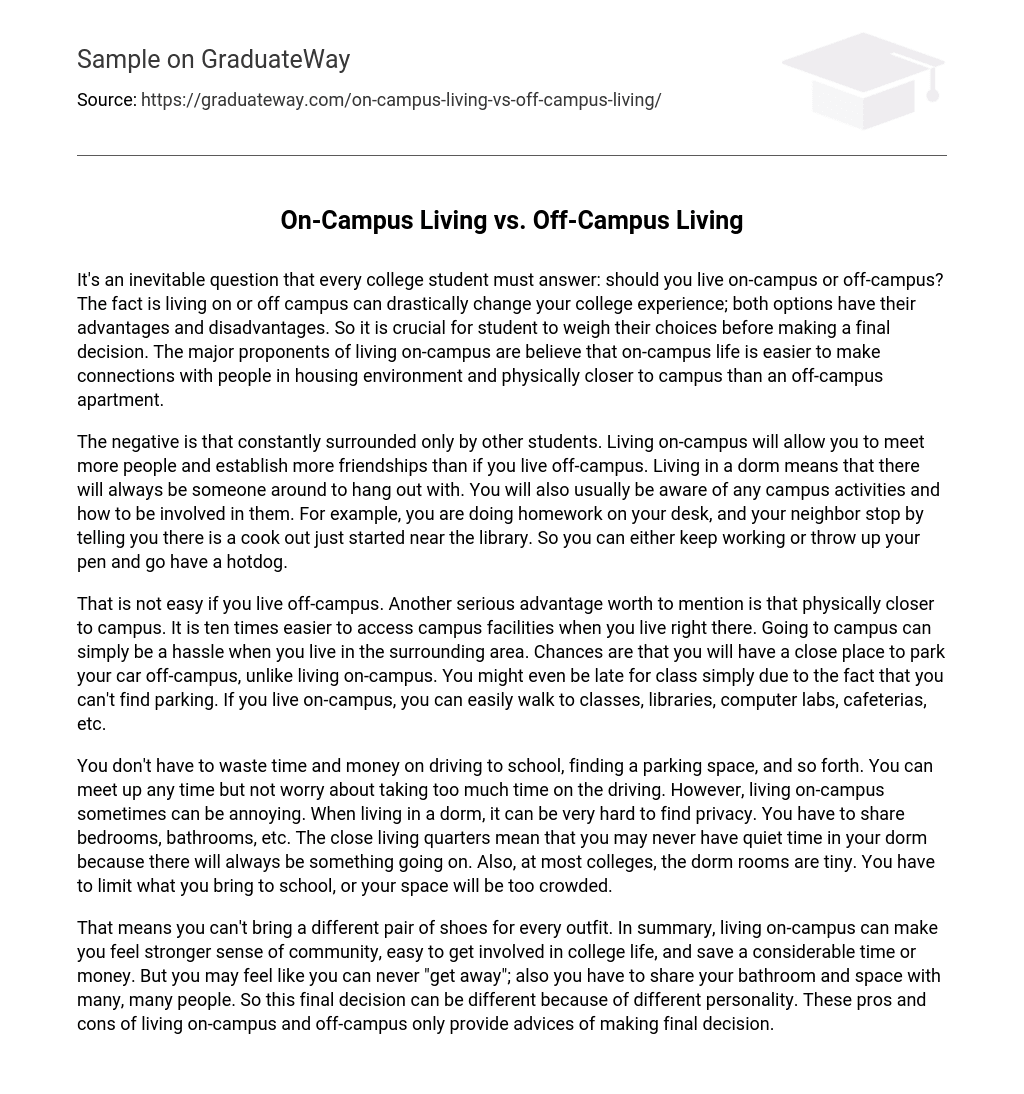When deciding on college living arrangements, the choice between on-campus or off-campus housing is inevitable and can significantly influence your college experience. It is crucial for students to thoroughly evaluate their options before making a decision as both choices have advantages and disadvantages. Supporters of on-campus living argue that it aids in building connections with other residents and provides convenient access to campus, unlike renting an off-campus apartment.
Living on-campus has its drawbacks, such as constantly being surrounded only by other students. However, it also presents the advantage of meeting and forming friendships with a larger number of individuals compared to living off-campus. Residing in a dormitory ensures a continuous presence of people to socialize with. Moreover, one typically stays well-informed about various campus activities and how to participate in them. For instance, picture yourself diligently working at your desk when your neighbor pays you a visit and informs you about a cookout happening near the library. You can choose to continue working or immediately take the opportunity to savor a hotdog.
Living off-campus can present challenges in accessing campus facilities, while living nearby makes it easier to access them compared to living further away. However, residing in the surrounding area may pose difficulties when commuting to campus, including finding parking and possibly being late for class. On the other hand, living on-campus offers the convenience of easily walking to classes, libraries, computer labs, cafeterias, and other facilities.
Saving time and money is one benefit of not needing to drive to school or find parking. It also allows for convenient meetups without excessive time spent on the road. However, living on-campus can be inconvenient due to a lack of dorm privacy. The constant activity from sharing bedrooms and bathrooms makes it difficult to find quiet moments. Furthermore, college dorm rooms are typically small, necessitating limited belongings to avoid overcrowding.
Living on-campus has its advantages, such as fostering a stronger sense of community and facilitating active participation in college life. Additionally, it can lead to potential savings in terms of both time and money. However, there may be drawbacks to consider, such as the difficulty of finding personal space and sharing communal areas with a large number of people. Ultimately, choosing between living on-campus or off-campus is a personal decision that depends on individual personality and preferences. These pros and cons can serve as helpful guidance when making the final choice.





